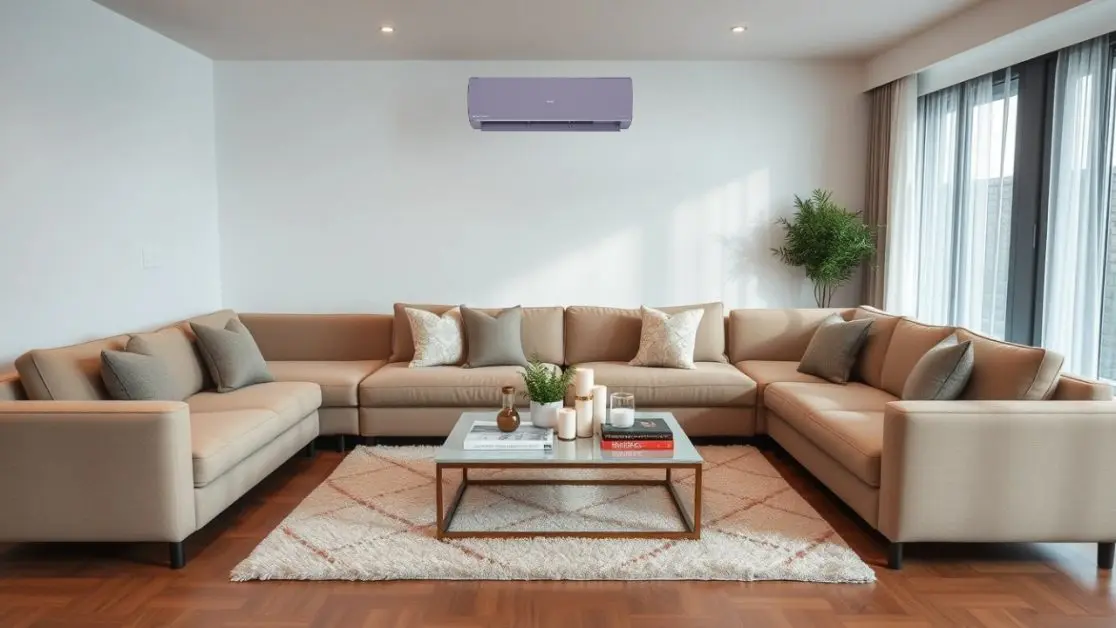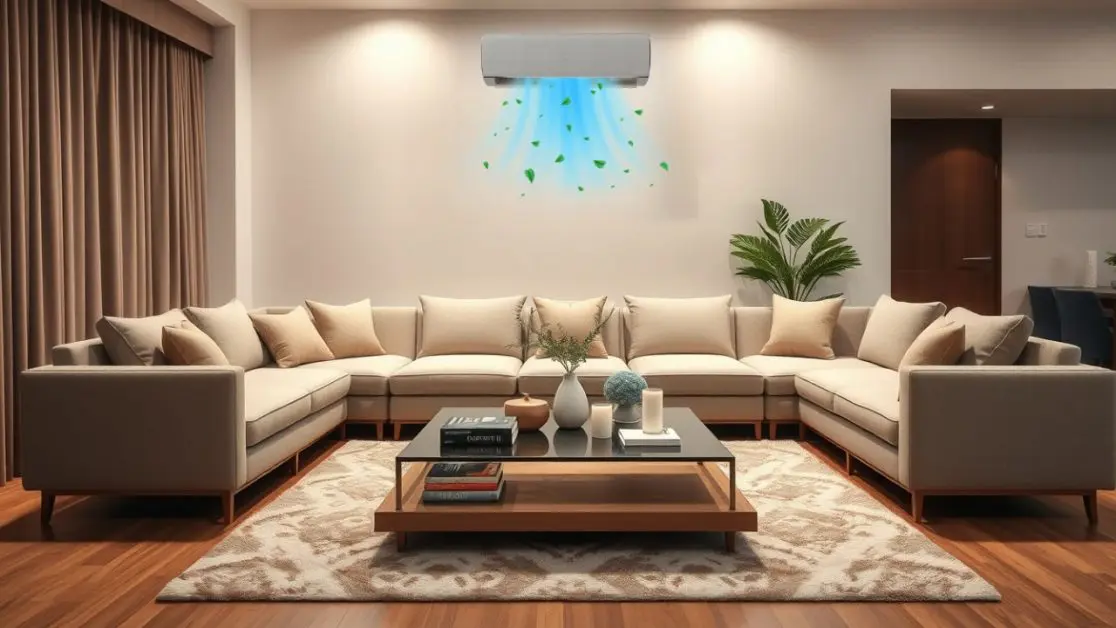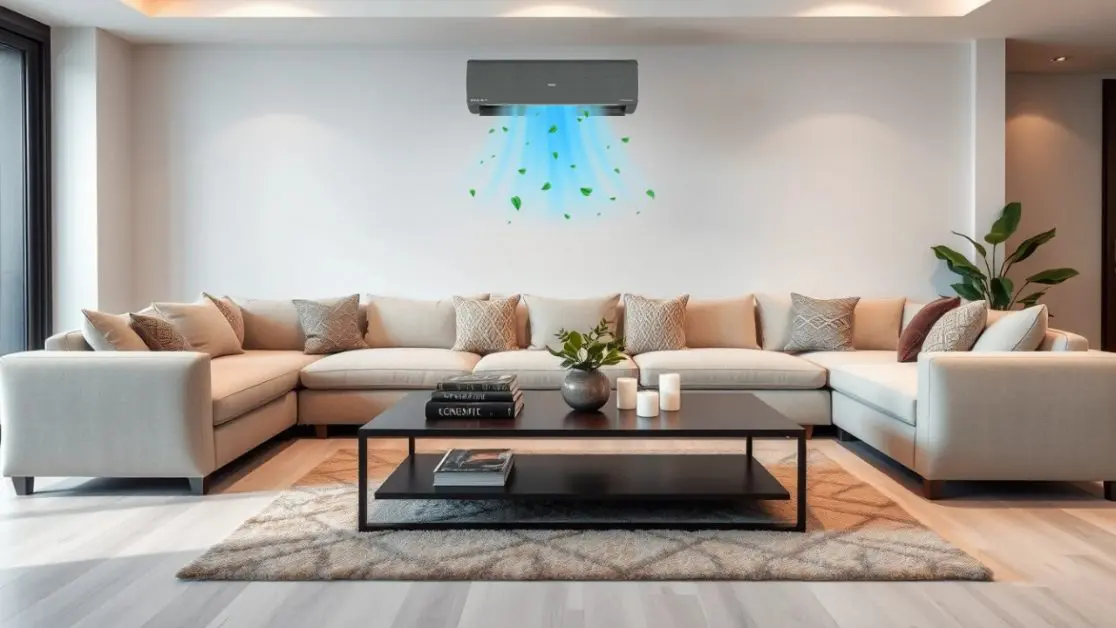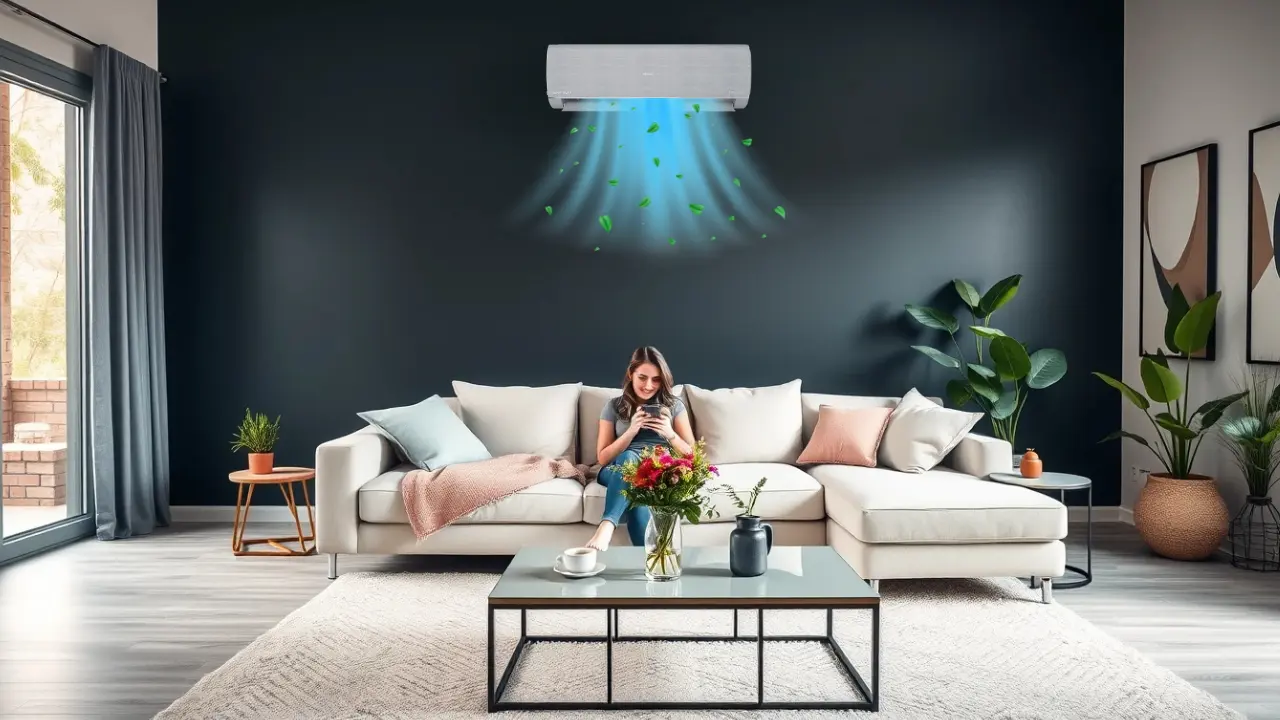Hey there! Feeling the heat already? You’re not alone!
With those crazy summer temperatures in India, having an AC feels less like a luxury and more like a must-have, right?
But let’s be honest, those electricity bills can really sting! You’re probably wondering how to stay cool without emptying your wallet. Well, have you heard about these inverter ACs?
They’re all the buzz for saving energy, but does that actually mean lower electricity bills for you?
That’s what we’re going to dive into. We’ll break down what makes these inverter ACs different from the older, traditional types.
We’ll look at how they work and, most importantly, if they can really help you save some serious cash on your power bill.
Choosing the right AC can be confusing, so let’s make it simple. By the end of this, you’ll have a clear picture of whether an inverter AC is the smart choice to keep you cool and your bank account happy!
How Inverter AC Technology Works

Inverter ACs differentiate themselves from regular air conditioners by applying variable-speed technology instead of using fixed-speed compressors. The compressor modulates its speed according to cooling requirements rather than operating through lengthy on-and-off cycles. This variable speed operation leads to improved power efficiency and stable indoor temperature control.
Several essential aspects of inverter ACs contribute to decreased energy expenses during operation:
- Hexa Inverter Technology functions as an energy-saving system that enhances compressor performance, achieving up to 65% power efficiency.
- Supersonic cooling in 10 second is a feature which minimizes power surges, allowing the device to reduce energy consumption and enables quick compressor startup, reducing overall heating time.
- 7-in-1 Convertible Modes provide users with the ability to control cooling capacity, helping them conserve power during unnecessary cooling conditions.
- Hyper PCB Technology ensures high ambient performance, maintaining stability and minimizing energy waste even in extreme temperatures.
- 20 meter Long Airflow cool the room faster, reducing overall operational time and power consumption.
Inverter AC vs. Conventional AC: Energy Consumption
The primary distinction between these devices lies in their system-controlled temperature regulation methods. Non-inverter AC models frequently start and stop their operation cycle, leading to substantial energy waste due to power surges. In contrast, inverter ACs adjust compressor speed to maintain a stable temperature, resulting in significant power savings.
| Feature | Inverter AC | Conventional AC |
| Compressor Speed | Variable | Fixed |
| Power Consumption | Low | High |
| Cooling Speed | Faster | Slower |
| Temperature Control | Precise | Fluctuating |
| Noise Levels | Lower | Higher |
| Long-term Savings | High | Low |
Real-World Electricity Savings

A person’s ability to save electricity depends heavily on their usage patterns, room size, and real-time temperature conditions. The power usage of inverter ACs is 30% to 50% lower than conventional AC units over a year. Annual electricity costs decrease significantly when households run their air conditioning units for eight-hour sessions.
Potential Energy Savings
The main reason behind an inverter AC’s reduced electricity consumption lies in its variable-speed compressor system. The variable-speed operation gradually lowers energy bills. A 1.5-ton inverter AC is more energy-efficient than a conventional AC of the same capacity, leading to reduced power costs for users.
An inverter model operates with adjustable power consumption levels, unlike conventional systems that maintain a steady high output. The control system reduces energy waste and improves efficiency by ensuring steady temperature regulation, eliminating the need for repeated compressor cycles.
Additional Benefits of Inverter ACs
- A stable temperature profile enhances user comfort by preventing continuous changes in air temperature.
- The machine produces minimal noise since it does not require frequent start-stop actions.
- Reduced wear and tear on components extends the operational lifespan of the system.
- The device operates with minimal energy, reducing carbon emissions.
Factors That Affect Energy Savings

The power efficiency of inverter ACs depends on several factors, such as usage behavior, room insulation, proper maintenance, and selecting the right capacity.
- Usage Behavior: Frequent on-off cycles can reduce the product’s operational efficiency.
- Room Insulation: Proper insulation improves operational efficiency.
- Regular Maintenance: Periodic servicing ensures optimal performance.
- Correct Capacity Selection: Choosing the right AC capacity prevents unnecessary energy consumption.
Should Customers Invest in Inverter Air Conditioners?
Despite their higher initial purchase cost compared to standard models, inverter ACs provide substantial savings over their lifespan. With rising electricity costs, energy-efficient appliances gradually reduce expenses over time. An inverter AC offers a valuable solution for consumers seeking high cooling capability along with energy savings.
Consumers using inverter ACs benefit from both comfort and reduced power bills. The energy-saving features of Haier inverter ACs, including Hexa Inverter, PKC, and KTS, make them ideal for Indian households.
For those seeking energy-efficient cooling, investing in an inverter AC is a wise choice. Haier India’s range of inverter ACs offers the perfect combination of comfort and cost savings.

